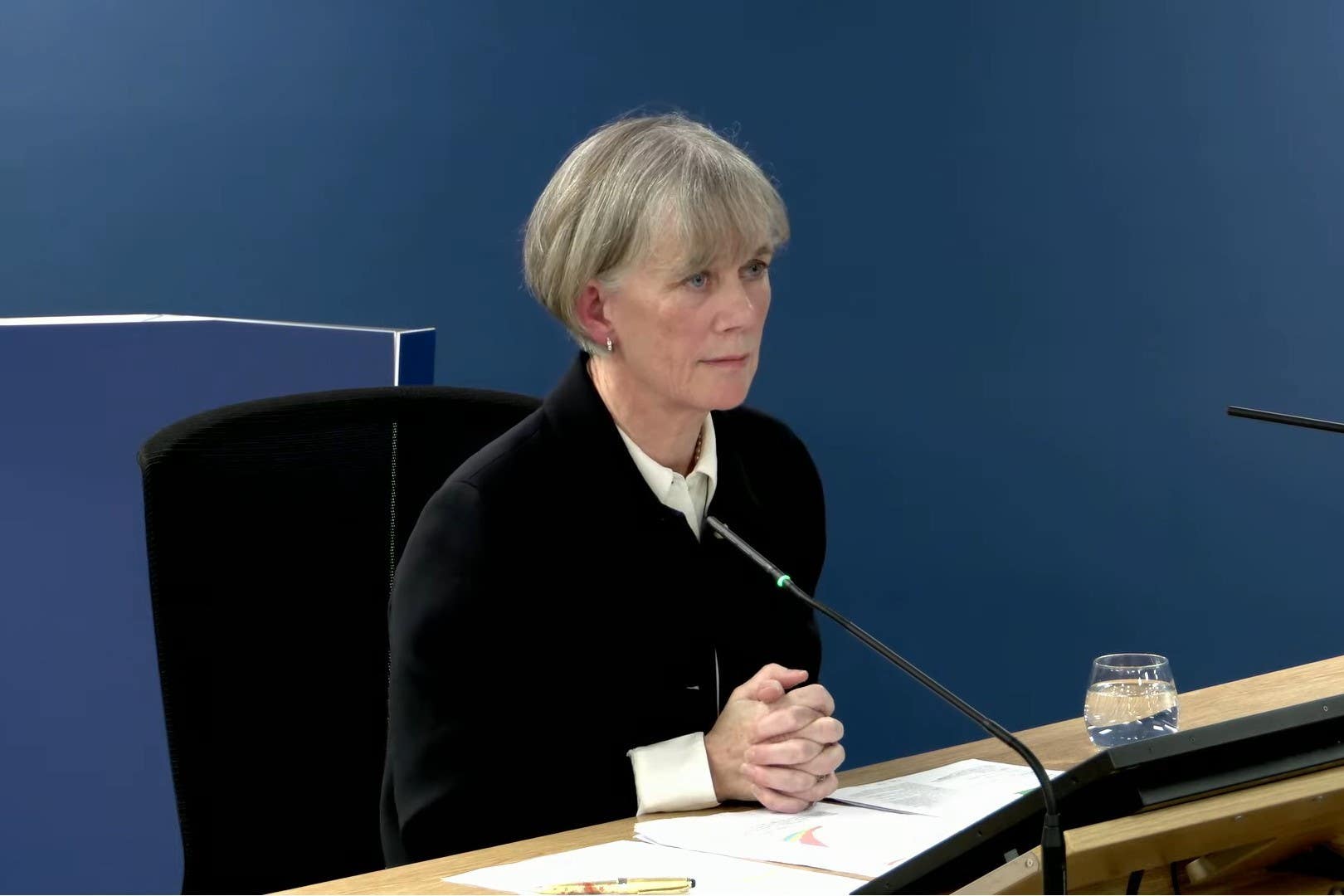Science adviser had to ‘paper over cracks’ between civil servants and academics
Dame Angela McLean has told the UK Covid-19 Inquiry there were times she had to step in when difficulties arose between academics and civil servants.

Your support helps us to tell the story
From reproductive rights to climate change to Big Tech, The Independent is on the ground when the story is developing. Whether it's investigating the financials of Elon Musk's pro-Trump PAC or producing our latest documentary, 'The A Word', which shines a light on the American women fighting for reproductive rights, we know how important it is to parse out the facts from the messaging.
At such a critical moment in US history, we need reporters on the ground. Your donation allows us to keep sending journalists to speak to both sides of the story.
The Independent is trusted by Americans across the entire political spectrum. And unlike many other quality news outlets, we choose not to lock Americans out of our reporting and analysis with paywalls. We believe quality journalism should be available to everyone, paid for by those who can afford it.
Your support makes all the difference.The Government’s chief scientific adviser has described how she had to “paper over the cracks” after some civil servants thought that academics were being “rude” during the pandemic.
Dame Angela McLean has told the UK Covid-19 Inquiry there were times she had to step in when difficulties arose between academics and civil servants.
When asked if the differences in approach caused any difficulties during the pandemic, the Government’s chief scientific adviser said: “There were several occasions when I had to paper over the cracks, I would say.
“It was mostly that an academic on SPI-M-O (Scientific Pandemic Influenza Group on Modelling, operational sub group) had told a civil servant why they were wrong in some way that the civil servant felt was rude.”
I was in contact with people saying ‘I’m sorry, that was upsetting for you. They didn’t mean to be rude to you personally. What they were talking about was your work’
She added that it was her job and she was “very happy to do it”.
“I was in contact with people saying ‘I’m sorry, that was upsetting for you. They didn’t mean to be rude to you personally. What they were talking about was your work’,” Dame Angela said.
She told the inquiry civil servants had a tendency to speak in a way which was “weirdly emollient” at meetings during the pandemic.
Dame Angela told the Covid inquiry that academics advising the Government would challenge each other and speak “pointedly” on issues.
She added: “Whereas it is very frequent in a civil service meeting that somebody would stand up and the very first thing they would say is ‘I agree with everything that has been said’, and I sat there thinking, ‘well, you can’t have been listening’.
“I don’t think they mean it, actually. I think it is sort of saying that means ‘I’m here to work with you. We have things we have got to deliver’.
“It is always difficult for an academic who becomes a civil servant to understand why people are saying this sort of weirdly emollient thing when actually our values are similar: we are trying to get to the truth.”
Meanwhile, the inquiry also heard that Dame Angela was not confident of the Treasury’s use of a simple model during the pandemic.
She explained that academics had created a “toy model” which was “an absolute caricature” that kept things as “simple as possible” so calculations could be easily done using the teaching tool.
“We wanted to make something that could be freely available, both to policymakers and, if they wanted, decision-takers, to build their understanding and intuition about how infectious disease systems work,” she said.
She added: “I was incredibly keen that they should have something that was internally correct. I mean, it wasn’t a great model, but it didn’t have mistakes in it, so that it could be relied on in that sense.”
However, the inquiry heard that the Treasury had played around with and changed that model.
Given their inability to spot egregious errors in other things they were sent I do not have confidence in their ability to hack a simple, sensible model
An earlier hearing of the inquiry was shown an email exchange which was written when Dame Angela was chief scientific adviser to the Ministry of Defence and also the deputy Government CSA at the time.
The correspondence read: “I have emailed Chris (Whitty) and Patrick (Vallance) saying HMT (Her Majesty’s Treasury) changed the model after I QA’d (quality assured) it and I don’t know how.
“Anything HMT says about infectious disease modelling, therefore, has no endorsement from me – they are on their own.
“Given their inability to spot egregious errors in other things they were sent I do not have confidence in their ability to hack a simple, sensible model.”
She also told the inquiry that the “toy model” had been carefully checked and that although the scientific advice that came through the Scientific Advisory Group for Emergencies (Sage) was completely transparent, whatever modelling the Treasury was doing to consider the economic case was not.